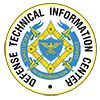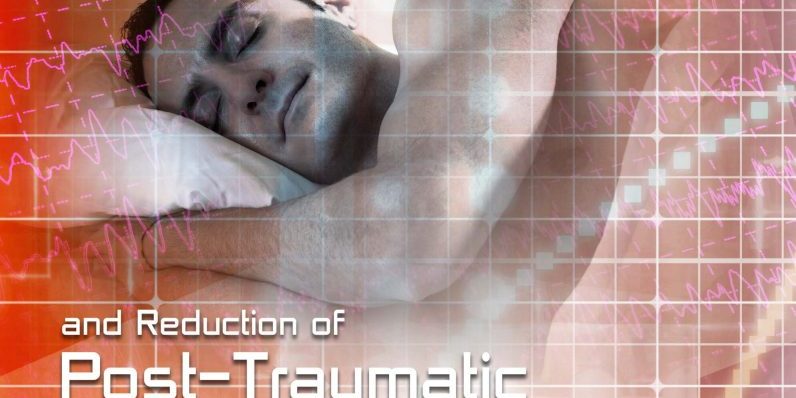The truth about restful sleep and performance is non-intuitive. In fact, many performance oriented athletes, scientists and the military still consider high performance directly related to stimulation – not relaxation enhanced, effective restful sleep. [1,2,3] Top performing athletes serving their fans and warriors serving their country are oriented to achieve objectives. The brain is a highly complex system – probably the most complex system known in the universe– and artificially clamping it or stimulating it toward some kind of “norm” refutes the current science of allostasis, or consistency through change – versus the previously held understanding of homeostasis, which dictates a set-point target for everyone in every condition. Achieving restful sleep requires a self-directed brain adjustment of its own rhythms and on its own terms. Sleep is one of the most important factors for optimum performance and well-being. Restful sleep is the basis for optimum performance – both cognitively and physically. The Harvard Business Review neatly summarizes findings that optimum performance directly connects to attaining restful sleep. [4]
The impact of less sleep greatly lengthens reaction time, impedes judgment and interferes with problem solving. The importance of sleep is not going unnoticed. The NFL now encourages players to track sleep in order to help optimize their performance. [3] Quickness, strength, endurance, flexibility, play recall and cognitive performance on the field are all part of what is behind the
NFL’s effort.
Fortune Magazine recently reported on how tracking sleep and diet helped Michael Phelps in Rio. [5] No performance was more pronounced than that of Michael Phelps and the U.S. Men’s Olympic Swimming Team, who made sleep a core focus in their successful training endeavors. Fatigue Science reports sleep is associated with significantly increased reaction times, reduced
injury rates, improved overall health, longer careers, better accuracy, faster sprint times and fewer mental errors. [6] These same results could prove crucial to the superior performance and longevity of our warfighters. A completely non-invasive process for promoting restful, deep sleep can be accomplished through high-resolution, relational, resonance-based, electroencephalic
mirroring technology, or HIRREM. [7]
Research funded by the Department of Defense using HIRREM neurotechnology to evaluate and relax the brain for special operations warriors indicates the need for relaxation, not stimulation. [8] HIRREM has been associated with reduced symptoms in a pilot study of people with insomnia. [9] A relaxed brain is able to achieve dynamic flexibility in brain activity patterns and demonstrates increased reaction speed and improved hand-grip strength, as well as reported recovery from years of traumatic stress symptoms. These findings were recently presented at the Medical, Biomedical & Biodefense: Support to the Warfighter Symposium. Most importantly, perhaps, is the fact that the relaxed brain supported more efficient and satisfying restful sleep.[10]
Under contract with the U.S. Army Research Office, Brain State Technologies successfully produced a wearable headband device for sleep and performance support. [11] Development included collaboration with researchers at Wake Forest School of Medicine, sleep medicine consultants from Harvard Medical School and the University of Virginia School of Medicine. Brain State
Technologies’ continued development of this device resulted in the production of the BRAINtellect® 2 (B-2), which has the potential to allow warfighters to relax and balance their brain while in the field to manage stress and facilitate relaxation for improved sleep and optimal performance.
Studies have also shown a causal link between individuals with sleep disorders and the later development of Post-Traumatic Stress Disorder. [12] Researchers began by reviewing data from a study of military service members deployed to Iraq after 9/11. In that study, published in 2013 in the journal Sleep, a group from the Veteran’s Administration and others found the risk for PTSD conferred by insomnia symptoms was almost as strong as … combat exposure. [13,14]
Sleep support may have the additional benefit of not only contributing to optimal performance, but prevention of later disorders that may render warfighters unable to return to combat operations. With the availability of a portable headband device to self-manage brain rhythms, such as the BRAINtellect 2, presents a cost efficient and likely effective device for most warriors to facilitate their own restful sleep and optimum performance. Those delving into the science of neurotechnology and the incredible complexity of the brain will appreciate this practical approach of supporting the brain to optimize itself.
References
1. Johnson, M. B., Sacks, D. N., & Edmonds, W. A. (2010). Counseling Athletes Who Use Performance Enhancing Drugs: A New Conceptual Framework Linked to Clinical Practice., Journal of Social, Behavioral, and Health Sciences, 4(1), 1-29. doi:10.5590/JSBHS.2010.04.1.01
2. Young, E. (2014, June 3). Brain stimulation: The military’s mind-zapping project.Retrieved from http://www.bbc.com/future/story/20140603-brain-zapping-the-futureof-war (accessed October 26, 2016)
3. Fryer, B. (2006, October). Sleep Deficit: The Performance Killer. Retrieved from https://hbr.org/2006/10/sleep-deficit-the-performance-killer (accessed October 26, 2016)
4. Belson, K. (2016, October 1). To the N.F.L., 40 Winks Is as Vital as the 40-Yard Dash. Retrieved from http://www.nytimes.com/2016/10/02/sports/football/nfl-playerssleep.html (accessed October 26, 2016)
5. Kell, J. (2016, August 31). How Tracking Sleep and Diet Helped Michael Phelps in Rio. Retrieved from http://fortune.com/2016/08/31/under-armour-phelps-fitness/(accessed October 26, 2016)
6. 5 areas sleep has the greatest impact on athletic performance. (2015, September 23).Retrieved from http://www.fatiguescience.com/blog/5-ways-sleep-impacts-peak-athletic-performance (accessed October 26, 2016)
7. Gerdes, L., Gerdes, P., Lee, S. W. and H. Tegeler, C. (2013), HIRREM™: a noninvasive, allostatic methodology for relaxation and auto-calibration of neural oscillations. Brain Behav, 3: 193–205. doi:10.1002/brb3.116
8. Department of Defense Funds Pilot Study at Wake Forest Baptist to Evaluate Effect of ‘Brainwave Balancing’ on PTSD Symptoms. (2014, July 24). Retrieved from http://www.wakehealth.edu/News-Releases/2014/Department_of_Defense_Funds_Pilot_Study_at_Wake_Forest_Baptist_to_Evaluate_Effect_of__Brainwave_Balancing__on_PTSD_Symptoms.htm (accessed October 26, 2016)
9. Music to the Ears for a Good Night’s Sleep? Wake Forest Baptist Studies New Therapy for Insomnia. (2012, November
19). Retrieved from http://www.wakehealth.edu/News-Releases/2012/Music_to_the_Ears_for_a_Good_Nights_Sleep_Wake_Forest_Baptist_Studies_New_Therapy_for_Insomnia.htm (accessed October 26, 2016)
10. Tegeler Ch., Tegeler Cl., Cook J., Lee S., Franco M., Nicholas J., Ray C., Howard L., Shaltout H. (2014). A Noninvasive Approach to Improve Insomnia in a Military Cohort. Journal of Sleep Disorders and Research,37, 192-193. Retrieved from http://www.journalsleep.org/Resources/Documents/2014AbstractSupplement.pdf (accessed October 27, 2016)
11. McCain, S. (2015, October 1). BST Successfully Produces Wearable Device for Sleep and Performance. Retrieved from http://braintellect.com/brain-state-technologies-successfully-produces-wearable-devices/(accessed October 26, 2016)
12. Pre-existing Symptoms of Insomnia Linked to the Development of PTSD and Other Mental Disorders, Following Military Deployment. (2013, June 28). Retrieved from http://
www.uphs.upenn.edu/news/News_Releases/2013/06/gehrman/ (accessed October 26, 2016)
13. Gerhman, P., Ph.D. (2016, February 23). PTSD: National Center for PTSD. Retrieved from http://www.ptsd.va.gov/professional/co-occurring/sleep_problems_veterans_ptsd.asp (accessed October 26, 2016)
14. Gehrman, P., Seelig, A. D., Jacobson, I. G., Boyko, E. J., Hooper, T. I., Gackstetter, G.D., … Smith, T. C. (2013). Predeployment Sleep Duration and Insomnia Symptoms as Risk Factors for New-Onset Mental Health Disorders Following Military Deployment. Sleep, 36(7), 1009–1018. Doi:10.5665/sleep.2798


